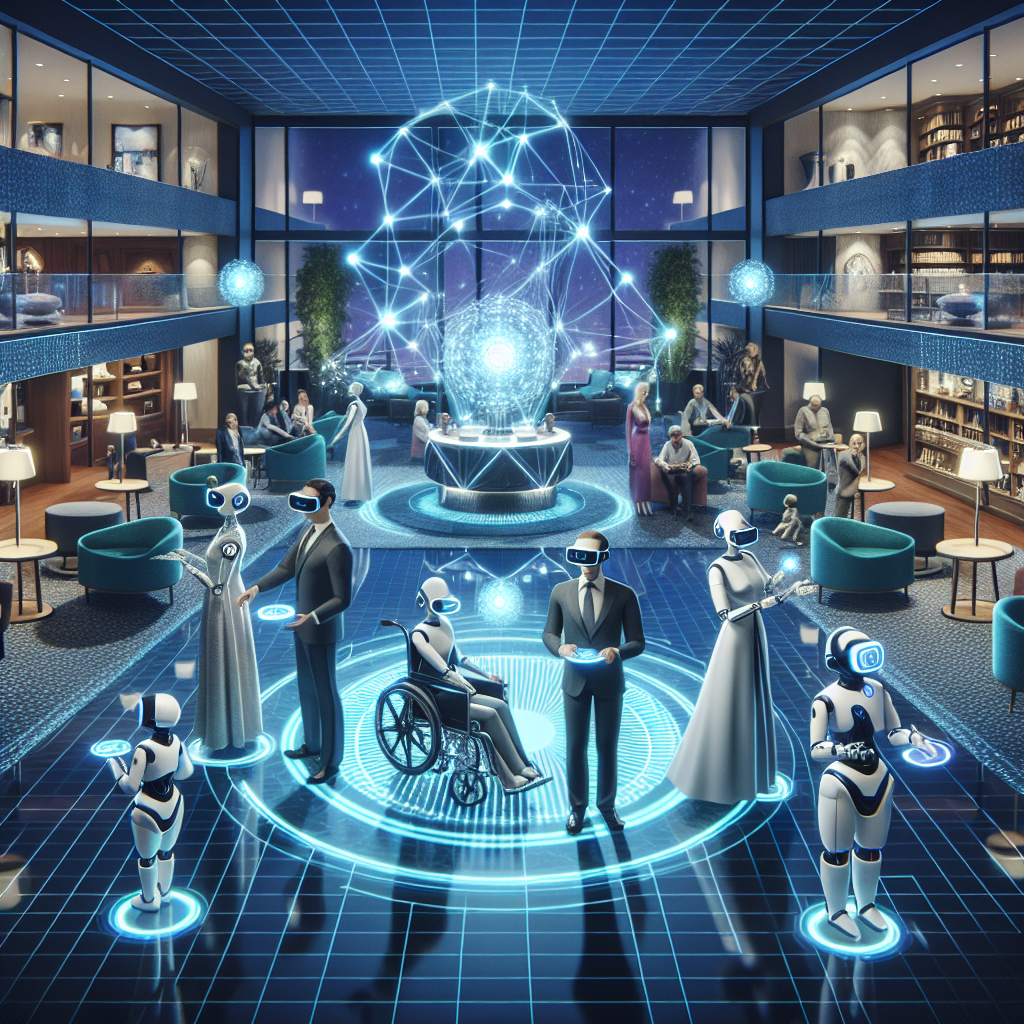The hospitality industry has always been at the forefront of adopting new technologies to enhance the guest experience. From online booking platforms to mobile check-in, hotels and resorts are constantly looking for ways to stay ahead of the curve. One of the most exciting developments in recent years is the integration of artificial intelligence (AI) and virtual reality (VR) into the hospitality industry.
AI-powered virtual reality (VR) is a cutting-edge technology that has the potential to revolutionize the way hotels and resorts interact with their guests. By combining the power of AI with the immersive experience of VR, hospitality businesses can create personalized, interactive experiences that cater to the needs and preferences of each individual guest.
One of the key benefits of AI-powered VR in the hospitality industry is the ability to create virtual tours of hotel rooms, amenities, and local attractions. Guests can explore these virtual spaces before they arrive, giving them a better sense of what to expect and helping them make more informed decisions about their stay. This can help reduce the number of cancellations and ensure that guests have a more enjoyable experience overall.
AI-powered VR can also be used to enhance the guest check-in process. By using facial recognition technology, hotels can streamline the check-in process and provide a more personalized experience for guests. This can help reduce wait times and improve overall guest satisfaction.
Another exciting application of AI-powered VR in the hospitality industry is the use of virtual concierge services. Guests can interact with a virtual assistant through a VR headset or mobile device to get information about the hotel, make reservations, and even book excursions or activities. This can help hotels provide better customer service and improve the overall guest experience.
In addition to enhancing the guest experience, AI-powered VR can also help hotels and resorts improve their operations. By using AI algorithms to analyze guest data and feedback, hotels can identify trends and make more informed decisions about pricing, marketing, and customer service. This can help businesses increase revenue, reduce costs, and stay competitive in an increasingly crowded market.
While the potential benefits of AI-powered VR in the hospitality industry are clear, there are also some challenges that businesses will need to overcome. One of the biggest hurdles is the cost of implementing this technology. Developing VR experiences and AI algorithms can be expensive, and not all hotels and resorts may have the resources to invest in this technology.
Another challenge is the need for training and education. In order to successfully implement AI-powered VR, hotels will need to train their staff on how to use the technology and ensure that guests are comfortable interacting with virtual assistants. This can be a significant investment of time and resources, but it is necessary in order to reap the benefits of this technology.
Despite these challenges, the future of AI-powered VR in the hospitality industry looks bright. As technology continues to evolve and become more accessible, hotels and resorts will have more opportunities to leverage AI-powered VR to enhance the guest experience and improve their operations. By staying ahead of the curve and embracing this technology, businesses can differentiate themselves from the competition and provide a truly unique and memorable experience for their guests.
FAQs
Q: How can AI-powered VR enhance the guest experience in the hospitality industry?
A: AI-powered VR can enhance the guest experience by providing virtual tours of hotel rooms and amenities, streamlining the check-in process with facial recognition technology, and offering virtual concierge services for booking reservations and activities.
Q: What are some of the challenges of implementing AI-powered VR in the hospitality industry?
A: Some of the challenges of implementing AI-powered VR in the hospitality industry include the cost of developing VR experiences and AI algorithms, the need for training and education for staff and guests, and the potential for technical glitches or malfunctions.
Q: What are some of the benefits of AI-powered VR for hotels and resorts?
A: Some of the benefits of AI-powered VR for hotels and resorts include increased guest satisfaction, improved operational efficiency, better decision-making through data analysis, and the ability to differentiate themselves from the competition.
Q: How can hotels and resorts stay ahead of the curve with AI-powered VR technology?
A: Hotels and resorts can stay ahead of the curve with AI-powered VR technology by investing in research and development, training their staff on how to use the technology, and continuously seeking feedback from guests to improve the guest experience.

